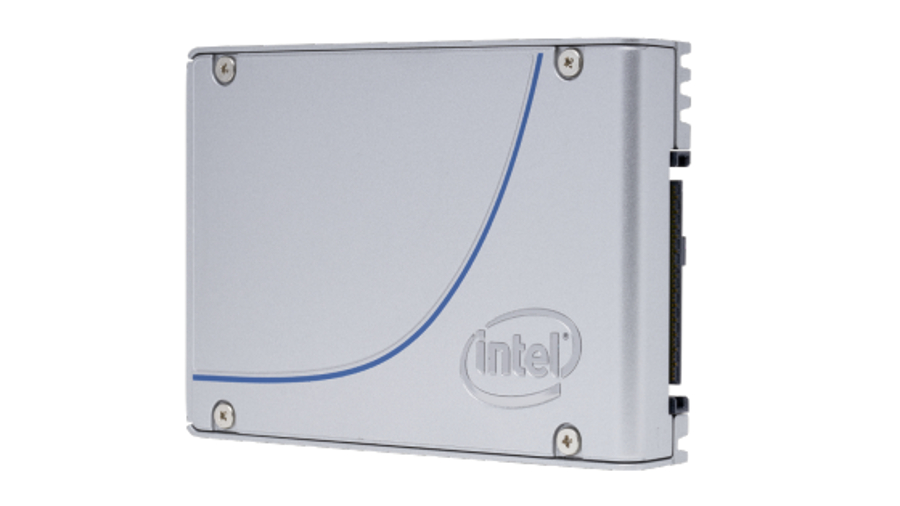Intel's new SSDs with 3D NAND tech are staggeringly quick
One new drive offers five times better performance than mainstream SATA models

Intel has revealed some blazingly fast new SSDs, including models which are the first drives to utilise its 3D NAND technology.
Those 3D NAND-toting beasts are the DC P3520 and P3320 series of solid-state drives. The P3320 will be offered in 2.5-inch (pictured) and PCIe card flavours, and it's optimised for cost-effective performance, with Intel claiming it delivers no less than five times the performance of a mainstream SATA SSD, with 3.2 times faster sequential reads.
This drive, which will be available in capacities from 450GB up to 2TB, is designed for the enterprise – think cloud and data crunching applications – but it shows the sort of speed which is in the pipeline for consumers in the future.
The P3520 is a similar offering but with further performance and latency boosts for high-performance cloud operations.
Intel also unveiled the DC D3700 and D3600 range which the company notes are its first dual-port PCIe SSDs, connecting to two host systems simultaneously for redundancy if (or when) things go wrong.
Clever combo
As for SSDs which will be plonked into Ultrabooks – or indeed desktop PCs – Intel also recently revealed the new 540s series which offers a combo of SLC cache and TLC NAND for what the company calls a good compromise between performance and value for money.
These drives will be available in both 2.5-inch and M.2 form factors with capacities ranging from 120GB to 1TB. The base 2.5-inch 120GB model will offer sequential read speeds of up to 560MB/s and write speeds of up to 480MB/s.
Are you a pro? Subscribe to our newsletter
Sign up to the TechRadar Pro newsletter to get all the top news, opinion, features and guidance your business needs to succeed!
Intel is also producing the Pro 5400s range of high-performance SSDs aimed at businesses, again with capacities from 120GB to 1TB, boasting improved security including support for Trusted Computing Group's Opal 2.0 protocol and Microsoft eDrive hardware encryption.
And of course, further down the line we've got Intel's Optane SSDs to look forward to, with models aimed at enthusiast PC builders set to emerge at the beginning of next year.
Darren is a freelancer writing news and features for TechRadar (and occasionally T3) across a broad range of computing topics including CPUs, GPUs, various other hardware, VPNs, antivirus and more. He has written about tech for the best part of three decades, and writes books in his spare time (his debut novel - 'I Know What You Did Last Supper' - was published by Hachette UK in 2013).